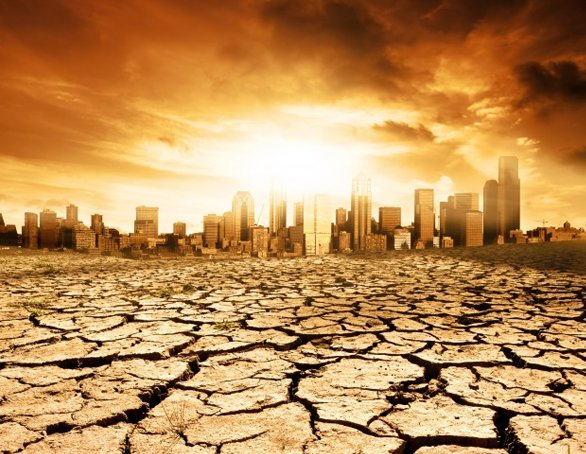Natural climate change & anthropogenic climate change

Climate is the average daily weather over a long period of time in a particular location. It is changed by both anthropogenic causes and natural phenomena such as volcanic eruptions and variations in solar radiation. Any change in the statistics of a climate system is commonly known as “climate change”. Anyhow, the term “climate change” is usually used to refer the anthropogenic climate change or change in the climate system due to human activities.
Climate scientists analyze some external measures such as ocean sediments, tree rings, ice cores and pollen remains to uncover the hidden history of climate. Recently, they ascertained that the earth’s climate has changed many times over long periods of time in the past. However, it has not abruptly changed in the previous millennium until the industrial revolution began and there was a certain pattern in the climate system which preserved the living beings including flora and fauna on this planet.
As we all know, climate conditions on the earth are decisive factors in determining the earth’s habitability. Unfortunately, it has been changing at an unexpected rate after the industrial revolution. This recent change in the climate system cannot be explained by natural phenomena alone and is attributed to various destructive human activities.
Human activities that gave birth to a new formidable term “climate change”.
As mentioned above, current change in the climate system is predominantly manmade. Though there are many different anthropogenic causes of climate change, burning of fossil fuels seems to be the most terribly damaging cause. By burning fossil fuels, we release tons of heat trapping gases into the atmosphere at every point of time thereby increasing the amount of heat trapping gases in the atmosphere. This increase has resulted in a gradual increase in global temperature (global warming) and eventually unforeseen change in the entire global climate system that we experience today.
As we have already experienced, climate change affects health, agricultural industry, oceans, forests, economy and almost all the things on the earth. Climate scientists expect more frequent extreme events as we are pumping more and more pollutants into the atmosphere. More extreme events mean more deaths and more damages.
Climate change is not just another change but an aggravating issue which seems to be an origin of a massive devastation soon. Even a small change in the climate system could lead to a broad range of natural disasters such as frequent floods, heat waves, typhoons, heavy rains, wildfires, storms, droughts and many more. Some extreme events may be caused by natural phenomena. But most of these extreme events and disasters may be caused by anthropogenic climate.

Figure: Storm clouds
“Climate change” and “global warming” are interchangeably used in many contexts but have different meanings. Climate change explains alterations occurring in the global climate system in numerous ways whereas global warming is just one indicator of the changing climate. Global warming is simply the long-term increase in the global average temperature and is the most dominating, most damaging sign of the changing climate. Global warming leads to most of the natural disasters and extreme events. In next post, we will discuss the global warming from top to bottom.
